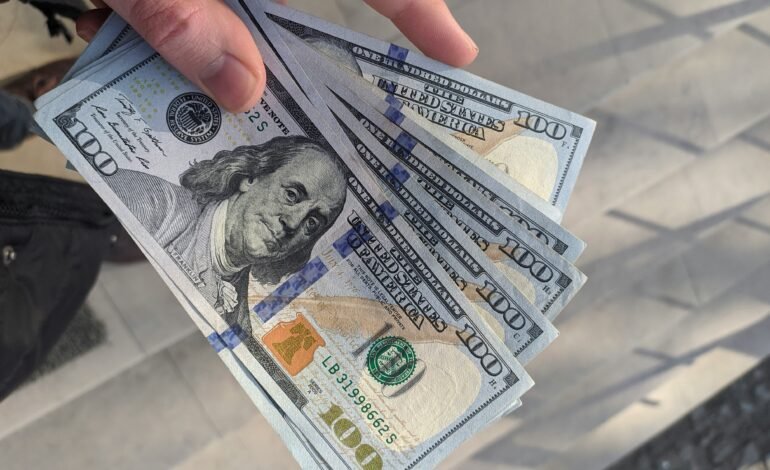Economy: Inflation rises and spending falls in the US.
Inflation in the US rises to 2.31%, and spending falls for the first time in months. The Fed is watching cautiously as tariffs have yet to fully impact.

Photo of Frederick Warren in Unsplash
US inflation rose again in May, according to the latest report from the Personal Consumption Expenditure Price Index (PCE), one of the Federal Reserve's preferred indicators for measuring the cost of living.
Compared to May last year, prices increased by 2,3%, up from 2.1% in April. Excluding food and energy (two categories that tend to fluctuate widely), core inflation was 2,7%, also higher than the previous month (2.5%).
What does this mean for your wallet?
Although prices are not rising at an alarming rate, they are still above the 21% annualized rate that the Federal Reserve considers healthy. This means that Americans are paying more for several products, and although this is not an extreme jump, it is a sign that inflation persists..
The cost of some items such as toys and sporting goods has risen, but this has been offset by Price drops on new cars, airfare, and rentals, which helps contain overall price pressure.
How does it affect people's spending?
For the first time since January, Consumers spent less in MayPersonal spending fell by 0,1%, indicating that many people are starting to take better care of their money. Income also fell slightly, in part because certain special Social Security payments issued in March and April were no longer being issued.
This slowdown in spending suggests that families are no longer buying as enthusiastically as they did at the beginning of the year, when many anticipated possible price increases due to new tariffs.
What about tariffs?
Despite the new tariffs pushed by former President Donald Trump, its impact on prices is still moderateMany businesses and consumers purchased goods in advance, before the taxes went into effect. Furthermore, some companies are absorbing some of the new costs, preventing prices from rising too much in stores.
Jerome Powell, chairman of the Federal Reserve, has warned that inflation could rebound this summer if tariffs begin to weigh more heavily on people's pockets. For now, the Fed will closely monitor this data before deciding whether to lower or maintain interest rates.
For more stories like this, follow More Latin.
Sources:
